
7 Signs You Have Abandonment Issues
Hey Psych2go family, welcome back to another video. Do you have an overwhelming fear of losing your loved ones? Do you distrust other people or have anxiety about being abandoned? Abandonment issues typically arise in childhood but can develop later on in life as well. The fear of abandonment is a serious type of anxiety that often stems from a traumatic experience. Some aren’t even aware of their expressed emotional trauma. But it can manifest into unhealthy behaviors over time. So, here are 7 Signs You may Have Abandonment Issues. One: you’re a people pleaser. Do you want to impress everyone you meet? Whether it’s your friends, acquaintances, or family members, you try to meet their expectations to get on their good side. You’re the one who tries harder in your relationship, and you’re willing to put everyone else’s needs ahead of yours, as long as it gets them to stay. If you have a strong need to please people and gain their approval, you may still have some unresolved abandonment issues.Two: you struggle with insecurity. Do you sometimes think that someday, the people closest to you will get sick of you and leave? People who are afraid of being abandoned often struggle with feelings of insecurity and inadequacy because someone you love has walked out on you in the past. You’ve internalized the emotional trauma. You may have wrongly believed that it was YOUR fault that they left. This can result in low self-esteem and a need for constant rereassuranceThree: you find it hard to trust people Do you find it hard to trust others to keep their promises or to be there for you? Do you want to be in control of your relationships and know everything that’s going on with your loved ones? Because you’ve been hurt in the past, you have a strong fear of being left alone.In certain cases, it can lead to feelings of unreasonable jealousy, suspicion, and possessiveness over your friends and romantic partners. Four: you’re afraid to be vulnerable Do you feel uncomfortable during moments of emotional intimacy and honesty? Are you scared of getting close to someone or needing them too much? Your deep-seated fear of abandonment may manifest into a fear of intimacy and emotional vulnerability. You may unconsciously sabotage your relationships by pushing people away just as you start to care for them. You may struggle with commitment, and act detached and indifferent when you do care.Five: you look for reasons to leave. Do you always look for reasons to leave in fear of getting too attached to someone? You hold your loved ones to unrealistically high standards and you only focus on their flaws. You don’t give them any room for mistakes. You do this knowing that they’re bound to disappoint you. And when they fail to meet your expectations, you use it as an excuse to give up and leave. Six: you move on too quickly Do you have difficulty forming meaningful relationships that last because of a deep-seated fear of abandonment? When you cycle through relationships one after another and move on too quickly, you’re not allowing yourself the time and space to deal with the emotional fallout.Instead, you dive into something new and exciting to distract yourself. You never want to be alone, because it would force you to confront the personal issues you’ve been repressing for so long. And number 7… you cling to unhealthy relationships Do you find yourself gravitating towards all the wrong people? Have you stayed with someone knowing they’re bad for you? The trauma of being abandoned, especially at a young age, can stay with you for a long time. And since we’re all hard-wired to recreate our early childhood experiences for comfort and familiarity, your childhood taught you the wrong things about love. It’s not uncommon for you to be drawn to people who treat you poorly. Do you relate to any of the signs mentioned here? I know I did… Is a fear of abandonment harming your relationships and keeping you from being happy? Let us know in the comments below. If you found this video helpful, be sure to like and share this video with those who might benefit from it! Don’t forget to subscribe to Psych2go for more videos! Thanks for watching, and we’ll see you in the next one! Do you have an overwhelming fear of losing your loved ones? Do struggle with trust issues or have anxiety about being abandoned? Abandonment issues typically arise in childhood but can develop later on in life as well. The fear of abandonment is a serious type of anxiety that often stems from a traumatic experience. Some aren’t even aware of their repressed emotional trauma, but it can manifest into unhealthy behaviors over time. Here are 7 signs that you may have abandonment issues. If you want to learn more about how your childhood trauma may cause you to have abandonment issues, be sure to check out our video “7 Ways Childhood Trauma Follow You Into Adulthood”:  • 7 Ways Childhood Trauma Follow You In… #abandonment #issues #psych2go ᵛᶦᵈᵗᵒᵒⁿ™ ².¹ ᴏɴᴇ ᴛɪᴍᴇ ᴏꜰꜰᴇʀ – ᴛʜᴇ 2ᴅ ᴀᴍɪɴᴀᴛɪᴏɴ ᴠɪᴅᴇᴏ ᴍᴀᴋᴇʀ After The Massive Success Of VidToon™ 1.0
And More Than 10ᴋ Happy Customers…WE ARE BACK ON Popular Demand! Redefine Profitability With The World’s Easiest & Most Popular Video Animation Software It’s ʙɪɢɢᴇʀ. ʙᴇᴛᴛᴇʀ. ᴀɴᴅ ꜰᴀꜱᴛᴇʀ.
• 7 Ways Childhood Trauma Follow You In… #abandonment #issues #psych2go ᵛᶦᵈᵗᵒᵒⁿ™ ².¹ ᴏɴᴇ ᴛɪᴍᴇ ᴏꜰꜰᴇʀ – ᴛʜᴇ 2ᴅ ᴀᴍɪɴᴀᴛɪᴏɴ ᴠɪᴅᴇᴏ ᴍᴀᴋᴇʀ After The Massive Success Of VidToon™ 1.0
And More Than 10ᴋ Happy Customers…WE ARE BACK ON Popular Demand! Redefine Profitability With The World’s Easiest & Most Popular Video Animation Software It’s ʙɪɢɢᴇʀ. ʙᴇᴛᴛᴇʀ. ᴀɴᴅ ꜰᴀꜱᴛᴇʀ.

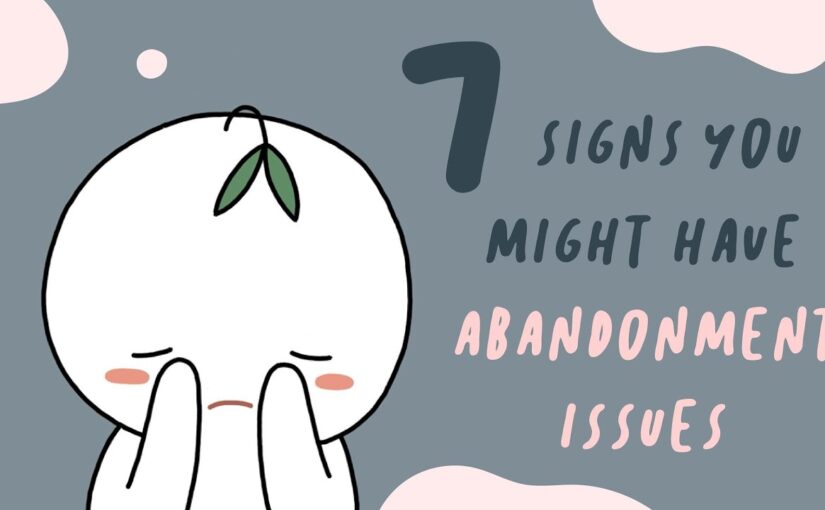
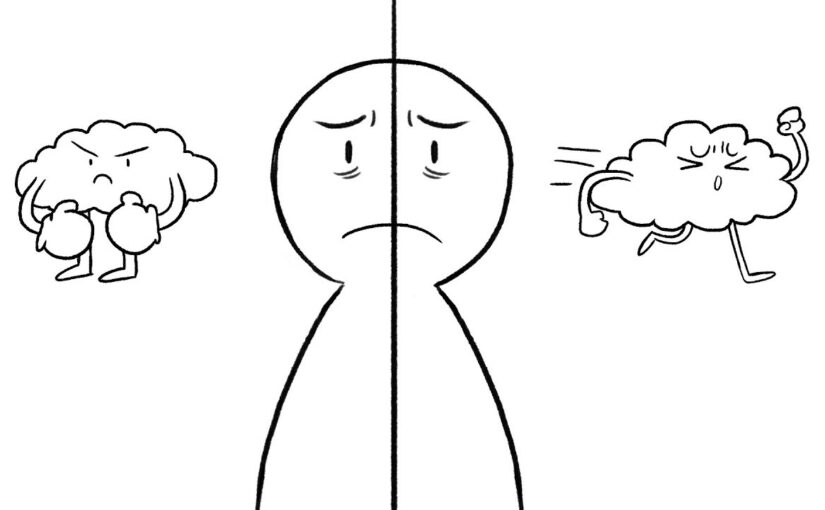
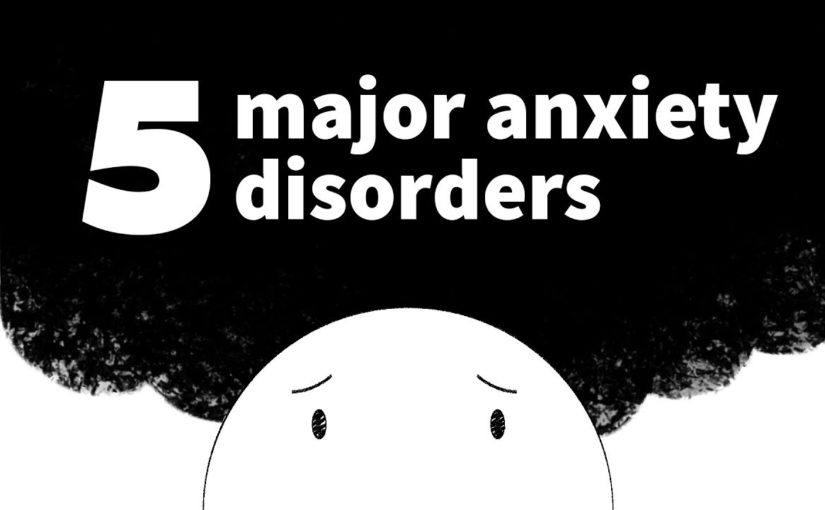
 Social anxiety is mainly treated with SSRIs and therapy, As we stated before, just because a treatment option looks similar from one anxiety to another. It isn’t going to be the same. Each sufferer presents their own needs that must be taken into account. Each therapy isn’t going to work the same for each Personalization of treatment is key in these situations. Number four panic disorder. Unlike the other anxiety disorders on this list, panic disorder rests solely on panic attacks With many other anxiety disorders. Panic attacks are just another symptom when it comes to panic disorder. Those attacks are the symptom. Panic disorder is characterized by recurrent panic attacks. The sufferer may experience heart palpitations erasing pulse an intense fear and the feeling that they are hopelessly out of control There. There isn’t a rhyme or reason to many of these attacks, so the sufferer is essentially lying in wait for the next one to come, Panic disorder can be treated in many ways. The medications used are some that we’ve heard of such as benzodiazepines and SSRIs. We are also introduced to serotonin-norepinephrine, reuptake, inhibitors or SNRIs, and beta blockers. These medications, as with OCD, are often used in conjunction with therapy to help maximize the usefulness of each Number. 5 post, traumatic, stress, disorder, Post, traumatic, stress, disorder or PTSD can be diagnosed in anyone For the most part. You have probably heard it when someone speaks about veterans or police officers, While those careers have a higher rate of PTSD. It is in fact, true that anyone can be diagnosed with it. Ptsd is the result of a very traumatic event or series of events. This leaves the sufferer with flashbacks and night terrors, where they feel as if they are right back in the event again, The sufferer may also suffer from panic attacks, as well as phobias, associated with people places or even sounds Medications such as fluoxetine venlafaxine may be used In the treatment of PTSD Therapies such as prolonged exposure, cognitive processing therapy, and brief eclectic psychotherapy may be utilized as well Again. This is a situation where the use of medications and therapy together can help give a better outcome than just one alone. It is important to note that those with PTSD can lash out in certain situations, But there is no need to be afraid of the sufferers. There is nothing inherently dangerous about them. Those with mental illness are exponentially more likely to be the victims of violent crimes than they are to be the perpetrators. This is not a complete list of the different anxiety disorders out there by any means, nor is it completely comprehensive in each description. There are many kinds of anxiety these just happen to be the most talked about and diagnosed at this particular moment, Regardless of which anxiety disorder. The diagnosis, it is important to remember that the sufferer needs help and acceptance. You don’t have to understand anxiety to be able to offer an ear to talk to, or some words to keep them grounded in the moment Remind the sufferer that they are alright, that what they are feeling are just symptoms of their anxiety, and that it Will pass if, given the time Aside from that, just make sure that they know you are there with them and wait it out? Do you suffer from one or more of the disorders listed Share your story in the comments below On a different note. Psych2Go is now selling t-shirts Links will be in the description below, As always, don’t forget to subscribe, and thanks for watching.
Social anxiety is mainly treated with SSRIs and therapy, As we stated before, just because a treatment option looks similar from one anxiety to another. It isn’t going to be the same. Each sufferer presents their own needs that must be taken into account. Each therapy isn’t going to work the same for each Personalization of treatment is key in these situations. Number four panic disorder. Unlike the other anxiety disorders on this list, panic disorder rests solely on panic attacks With many other anxiety disorders. Panic attacks are just another symptom when it comes to panic disorder. Those attacks are the symptom. Panic disorder is characterized by recurrent panic attacks. The sufferer may experience heart palpitations erasing pulse an intense fear and the feeling that they are hopelessly out of control There. There isn’t a rhyme or reason to many of these attacks, so the sufferer is essentially lying in wait for the next one to come, Panic disorder can be treated in many ways. The medications used are some that we’ve heard of such as benzodiazepines and SSRIs. We are also introduced to serotonin-norepinephrine, reuptake, inhibitors or SNRIs, and beta blockers. These medications, as with OCD, are often used in conjunction with therapy to help maximize the usefulness of each Number. 5 post, traumatic, stress, disorder, Post, traumatic, stress, disorder or PTSD can be diagnosed in anyone For the most part. You have probably heard it when someone speaks about veterans or police officers, While those careers have a higher rate of PTSD. It is in fact, true that anyone can be diagnosed with it. Ptsd is the result of a very traumatic event or series of events. This leaves the sufferer with flashbacks and night terrors, where they feel as if they are right back in the event again, The sufferer may also suffer from panic attacks, as well as phobias, associated with people places or even sounds Medications such as fluoxetine venlafaxine may be used In the treatment of PTSD Therapies such as prolonged exposure, cognitive processing therapy, and brief eclectic psychotherapy may be utilized as well Again. This is a situation where the use of medications and therapy together can help give a better outcome than just one alone. It is important to note that those with PTSD can lash out in certain situations, But there is no need to be afraid of the sufferers. There is nothing inherently dangerous about them. Those with mental illness are exponentially more likely to be the victims of violent crimes than they are to be the perpetrators. This is not a complete list of the different anxiety disorders out there by any means, nor is it completely comprehensive in each description. There are many kinds of anxiety these just happen to be the most talked about and diagnosed at this particular moment, Regardless of which anxiety disorder. The diagnosis, it is important to remember that the sufferer needs help and acceptance. You don’t have to understand anxiety to be able to offer an ear to talk to, or some words to keep them grounded in the moment Remind the sufferer that they are alright, that what they are feeling are just symptoms of their anxiety, and that it Will pass if, given the time Aside from that, just make sure that they know you are there with them and wait it out? Do you suffer from one or more of the disorders listed Share your story in the comments below On a different note. Psych2Go is now selling t-shirts Links will be in the description below, As always, don’t forget to subscribe, and thanks for watching.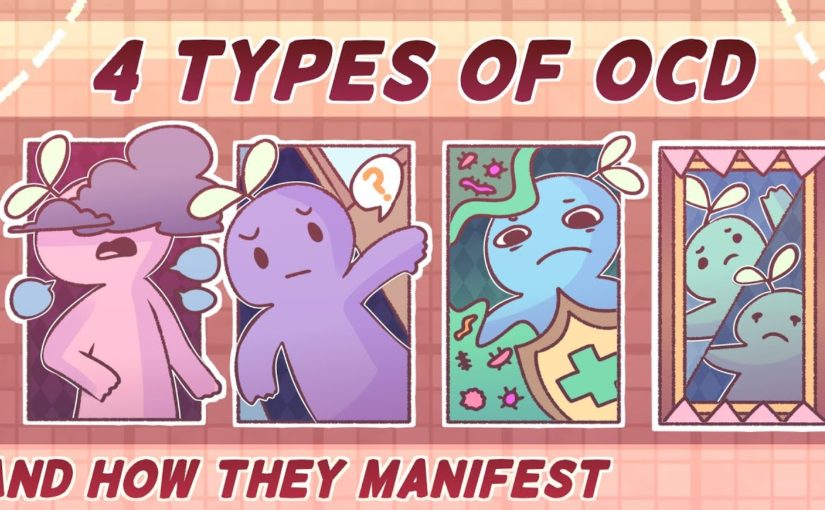
 Someone with those CDs may check an email they’ve written over and over. For any imperfections and fear, they may have written something wrong or will offend someone. Could you imagine writing an email to your boss only to check it for minutes on end all due to fear, you may have written something that could come across as inappropriate and therefore lose your job. As a result, We all generally need our jobs. So while this fear may seem to derive from an irrational place, those checking their email for the hundredth time are often afraid of losing something important to them. This is a common fear for those suffering from OCD, In the sense that they love or value something. So much so that they will strongly feel the need to act out these compulsions to protect what they love And since what you, love and value can often change in your life. Ocd will grab a hold of what it is. You’re enjoying and valuing and trying to manipulate it. Inside of your mind, according to your fears, This is one of the many dark features of OCD Number three Contamination or Mental Contamination Among those with OCD. There are generally two types of contamination obsessions. One is simply labeled, as contamination Contamination is often characterized by the strong fear of being dirty or contracting germs from objects or people. Someone may not like to shake hands, as they have an obsession with contracting a virus from someone else or someone may be excessively brushing their teeth or scrubbing their hands for minutes on end out of fear of not feeling clean enough or feeling just right. A lot of physical damage can occur due to these compulsions. Mental contamination is an area of OCD. Researchers are just recently starting to get an understanding of this. It can be evoked when someone feels as if they’ve been treated badly or if someone makes an abusive remark to them. The person will engage in compulsions to wash away this bad feeling, such as showering or acting out other compulsions And number four Symmetry and Orderliness. This type of OCD manifests in different ways such as organizing one’s, books or DVDs, making sure everything is neat, or clothes, folded perfectly and hanging the same way, While a lot of us may simply like symmetry, those with OCD focused on symmetry and order Are obsessed about it and did not gain any enjoyment out of organizing to ensure it feels just right, Remember what may look organized and clean to someone who doesn’t have OCD may feel wrong to someone with OCD because it’s about the feeling. Logically, they know their books are neatly stacked and their closet is fairly organized, but they can’t shake the strong feeling that it isn’t just right. This feeling may even pester them throughout the entire day, which is why they so strongly feel the need to act out the compulsion With OCD. The compulsion often only provides relief for literally a second. The thoughts and obsessions play on a loop, leaving a repetitive cycle and compulsions are an urge to simply be free of fear and, if, for only just a second to feel right. Fortunately, there is good news and hope in some of this. Some therapists do understand and specialize in treating OCD. Some of those affected by OCD have seen productive results through cognitive behavioral therapy from a therapist who does understand the condition. If you suspect you or someone else may have OCD, we highly recommend you seek professional help. So, do you now understand OCD a little bit more Thanks for watching and learning more about mental illness and psychology Psych2Goers. Did you learn something new about OCD? Are you or someone you know diagnosed with OCD Feel free to share with us in the comments and engage with others who may suffer from the same type as you. It can help to understand your mental illness more and make you feel less alone in the process, because you’re not alone, no matter what you’re, going through, A bit of support could be the first step into feeling just a little bit better. If you found this video helpful, don’t forget to click the like button and share it with someone who might need it Subscribed to Psych2Go and hit the notification bell icon for more content like this, and as always, thanks for watching.
Someone with those CDs may check an email they’ve written over and over. For any imperfections and fear, they may have written something wrong or will offend someone. Could you imagine writing an email to your boss only to check it for minutes on end all due to fear, you may have written something that could come across as inappropriate and therefore lose your job. As a result, We all generally need our jobs. So while this fear may seem to derive from an irrational place, those checking their email for the hundredth time are often afraid of losing something important to them. This is a common fear for those suffering from OCD, In the sense that they love or value something. So much so that they will strongly feel the need to act out these compulsions to protect what they love And since what you, love and value can often change in your life. Ocd will grab a hold of what it is. You’re enjoying and valuing and trying to manipulate it. Inside of your mind, according to your fears, This is one of the many dark features of OCD Number three Contamination or Mental Contamination Among those with OCD. There are generally two types of contamination obsessions. One is simply labeled, as contamination Contamination is often characterized by the strong fear of being dirty or contracting germs from objects or people. Someone may not like to shake hands, as they have an obsession with contracting a virus from someone else or someone may be excessively brushing their teeth or scrubbing their hands for minutes on end out of fear of not feeling clean enough or feeling just right. A lot of physical damage can occur due to these compulsions. Mental contamination is an area of OCD. Researchers are just recently starting to get an understanding of this. It can be evoked when someone feels as if they’ve been treated badly or if someone makes an abusive remark to them. The person will engage in compulsions to wash away this bad feeling, such as showering or acting out other compulsions And number four Symmetry and Orderliness. This type of OCD manifests in different ways such as organizing one’s, books or DVDs, making sure everything is neat, or clothes, folded perfectly and hanging the same way, While a lot of us may simply like symmetry, those with OCD focused on symmetry and order Are obsessed about it and did not gain any enjoyment out of organizing to ensure it feels just right, Remember what may look organized and clean to someone who doesn’t have OCD may feel wrong to someone with OCD because it’s about the feeling. Logically, they know their books are neatly stacked and their closet is fairly organized, but they can’t shake the strong feeling that it isn’t just right. This feeling may even pester them throughout the entire day, which is why they so strongly feel the need to act out the compulsion With OCD. The compulsion often only provides relief for literally a second. The thoughts and obsessions play on a loop, leaving a repetitive cycle and compulsions are an urge to simply be free of fear and, if, for only just a second to feel right. Fortunately, there is good news and hope in some of this. Some therapists do understand and specialize in treating OCD. Some of those affected by OCD have seen productive results through cognitive behavioral therapy from a therapist who does understand the condition. If you suspect you or someone else may have OCD, we highly recommend you seek professional help. So, do you now understand OCD a little bit more Thanks for watching and learning more about mental illness and psychology Psych2Goers. Did you learn something new about OCD? Are you or someone you know diagnosed with OCD Feel free to share with us in the comments and engage with others who may suffer from the same type as you. It can help to understand your mental illness more and make you feel less alone in the process, because you’re not alone, no matter what you’re, going through, A bit of support could be the first step into feeling just a little bit better. If you found this video helpful, don’t forget to click the like button and share it with someone who might need it Subscribed to Psych2Go and hit the notification bell icon for more content like this, and as always, thanks for watching.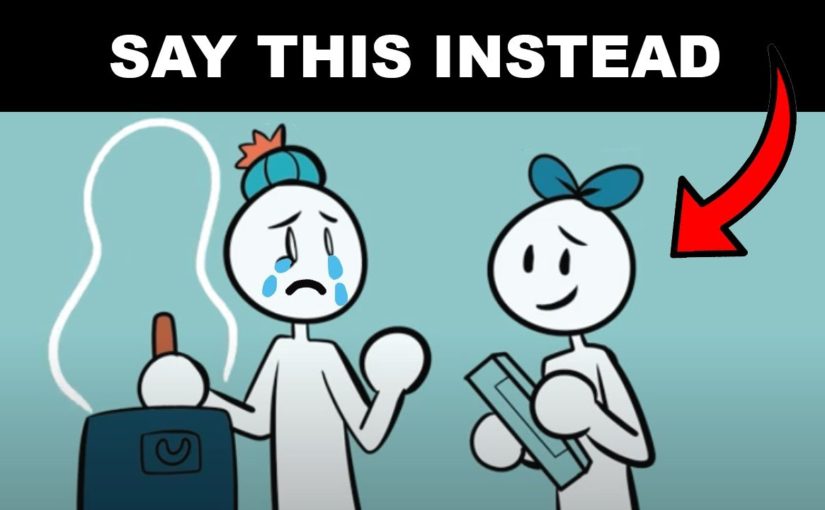
 They might need Number three hey. Let’s go for a walk, we can talk about it or we can just get some fresh air. A change of environment is a choice tool for interrupting the cycle of anxiety. It distracts the brain from its worries Focusing on the world around, helps, create distance between the person and their thoughts, which ultimately makes it easier to talk about and to let go If they don’t feel like talking at least they’ll have something else To occupy their mind with Number four: is it okay? If I hug you, Consent is key, Even when it comes to hugs hands, holding, and other innocent touches. They can all be triggering to someone with anxiety. Plus there are a lot of people who just don’t like to be touched, So it’s always important to ask first. Sometimes a hug can be incredibly comforting during a difficult time like a physical reminder that you’re not alone. During extreme anxiety, though, being touched, can make one feel trapped and claustrophobic, So it’s always appreciated when someone asks before going in for a hug, It reminds them that they’re in control of the conversation Number five, I’m here, for you, no matter what is happening If you’re, going to offer to be there for someone who battles anxiety, be honest about what you’re, able to do or be ready to be open to whatever comes your way, It’s nice to hear that someone is On their side, but it can’t help if the encouragement is conditional To promise support only to disappear when things get tough, can make it difficult to trust those who make this pledge. It can make them wary of such promises in the future when they have ample evidence backing their hesitations. Authentic support is especially reassuring when you’re able to give it unconditionally building their trust and self-esteem. Number six would be advice, be helpful, or should I just listen Hugging joking, and advice, giving might be your first instinct when you see someone you love in distress, but people with anxiety sometimes feel overwhelmed and even intimidated by the constant fire of suggestions, And they can react Intensely when someone starts spouting out suggestions before they’ve even had a chance to finish talking, It might be hard, but you have to fight the urge to be a friend sometimes Instead, asking this question puts the person with anxiety in control of what happens next, Which in itself may relieve some of their anxious edge And number seven, I don’t know what to say, but I’m here, for you Honesty is always the best policy. Anxiety can be a difficult subject matter, So it’s. Okay, if you don’t know what to say or how to react Honestly, sometimes even they don’t know what to say, but it’s refreshing and reassuring to be genuine. During such a vulnerable conversation, Friends and family have admitted that they fear, saying the wrong thing or making situations worse, but that the important thing for them – isn, ‘t always what you say but to let them know that you’re there for them. No matter what We hope, we were able to give you a little insight into some of the ways that you can show your support to those living with anxiety. If you suffer from anxiety, how do you feel about the points mentioned in this video? Let us know in the comments below, If you found this video insightful, be sure to hit the like and subscribe button and share it with someone who might benefit from it too. As always thanks so much for watching and we’ll see you soon.
They might need Number three hey. Let’s go for a walk, we can talk about it or we can just get some fresh air. A change of environment is a choice tool for interrupting the cycle of anxiety. It distracts the brain from its worries Focusing on the world around, helps, create distance between the person and their thoughts, which ultimately makes it easier to talk about and to let go If they don’t feel like talking at least they’ll have something else To occupy their mind with Number four: is it okay? If I hug you, Consent is key, Even when it comes to hugs hands, holding, and other innocent touches. They can all be triggering to someone with anxiety. Plus there are a lot of people who just don’t like to be touched, So it’s always important to ask first. Sometimes a hug can be incredibly comforting during a difficult time like a physical reminder that you’re not alone. During extreme anxiety, though, being touched, can make one feel trapped and claustrophobic, So it’s always appreciated when someone asks before going in for a hug, It reminds them that they’re in control of the conversation Number five, I’m here, for you, no matter what is happening If you’re, going to offer to be there for someone who battles anxiety, be honest about what you’re, able to do or be ready to be open to whatever comes your way, It’s nice to hear that someone is On their side, but it can’t help if the encouragement is conditional To promise support only to disappear when things get tough, can make it difficult to trust those who make this pledge. It can make them wary of such promises in the future when they have ample evidence backing their hesitations. Authentic support is especially reassuring when you’re able to give it unconditionally building their trust and self-esteem. Number six would be advice, be helpful, or should I just listen Hugging joking, and advice, giving might be your first instinct when you see someone you love in distress, but people with anxiety sometimes feel overwhelmed and even intimidated by the constant fire of suggestions, And they can react Intensely when someone starts spouting out suggestions before they’ve even had a chance to finish talking, It might be hard, but you have to fight the urge to be a friend sometimes Instead, asking this question puts the person with anxiety in control of what happens next, Which in itself may relieve some of their anxious edge And number seven, I don’t know what to say, but I’m here, for you Honesty is always the best policy. Anxiety can be a difficult subject matter, So it’s. Okay, if you don’t know what to say or how to react Honestly, sometimes even they don’t know what to say, but it’s refreshing and reassuring to be genuine. During such a vulnerable conversation, Friends and family have admitted that they fear, saying the wrong thing or making situations worse, but that the important thing for them – isn, ‘t always what you say but to let them know that you’re there for them. No matter what We hope, we were able to give you a little insight into some of the ways that you can show your support to those living with anxiety. If you suffer from anxiety, how do you feel about the points mentioned in this video? Let us know in the comments below, If you found this video insightful, be sure to hit the like and subscribe button and share it with someone who might benefit from it too. As always thanks so much for watching and we’ll see you soon.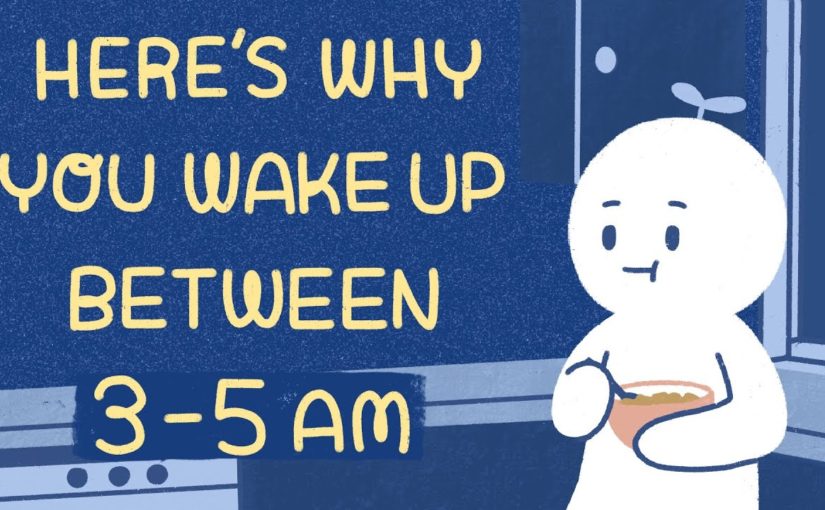
 Number three, low blood sugar. Did you know that low
blood sugar can cause your brain to wake you up
in the middle of the night? Your brain is very active during the night as it regenerates, repairs, and converts your short-term memories into long-term memories while you sleep. However, since it’s so
active during the night, it also uses up a lot
of your energy reserves. If you suffer from low blood sugar levels, your brain will consume
most of your energy reserves and think that you’ve run out of fuel. As a result, your brain
will release cortisol to make you hungry and wake you up so you can go get something to eat. If you find yourself routinely waking up and going to the kitchen to root around for a midnight snack, you may have low blood sugar levels and this might be the cause
of your sleep disturbances. If you’re having trouble
sleeping through the night and waking up at odd hours do you now have a better sense of why this is happening to you? What are other reasons
you think could be waking you up at 3:00 am and 5:00 am? Share your thoughts with
us in the comments below. Please like and share this
video if it helped you and you think it could
help someone else too. The studies and references used are listed in the description below. Don’t forget to hit the subscribe button for more Psych2go videos
and thank you for watching. We’ll see you next time.
Number three, low blood sugar. Did you know that low
blood sugar can cause your brain to wake you up
in the middle of the night? Your brain is very active during the night as it regenerates, repairs, and converts your short-term memories into long-term memories while you sleep. However, since it’s so
active during the night, it also uses up a lot
of your energy reserves. If you suffer from low blood sugar levels, your brain will consume
most of your energy reserves and think that you’ve run out of fuel. As a result, your brain
will release cortisol to make you hungry and wake you up so you can go get something to eat. If you find yourself routinely waking up and going to the kitchen to root around for a midnight snack, you may have low blood sugar levels and this might be the cause
of your sleep disturbances. If you’re having trouble
sleeping through the night and waking up at odd hours do you now have a better sense of why this is happening to you? What are other reasons
you think could be waking you up at 3:00 am and 5:00 am? Share your thoughts with
us in the comments below. Please like and share this
video if it helped you and you think it could
help someone else too. The studies and references used are listed in the description below. Don’t forget to hit the subscribe button for more Psych2go videos
and thank you for watching. We’ll see you next time.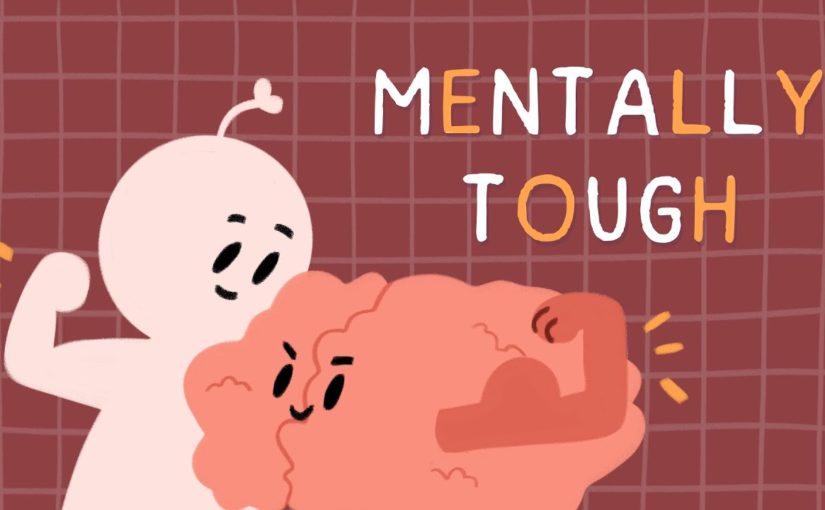
 Everyone, at some point, has run away from something difficult. It’s perfectly normal to want to run away when things get harder for you. It can feel overwhelming and impossible, like climbing over a mountain. But sometimes, to move forward, we have to figure out how to get through those difficult times. You certainly don’t have to do it alone. Find a support group that’ll be able to provide comfort, support, and strength for you. Some people can walk with you through this difficult time and help you to safely reach the other side of the mountain. Number four is exercise. Even though physical exercise is mostly for your physical benefit, it has mental benefits too. Physical exercise helps
you establish discipline. The discipline of the mind is necessary for developing your mental toughness because that helps you build consistency. When you’re steadfastly committed to building up your mental fortitude, negativity has a harder
time tripping you up. Regular exercise gives you a sense of routine, and consistency, and the added benefit of providing a healthy outlet for
your emotions and stress. Number five, learn how to lose gracefully. Despite how unpleasant it might be, failure can be the ultimate teacher. When you’re dealing with failure, sometimes the resulting anxiety and stress can weigh you down. This keeps you from
learning from your mistakes, whatever the lesson might be. Take the time to sit with your thoughts and work through the feelings
that you’re experiencing. Ask yourself, “What is the lesson here “and how do I move forward?” Once you’re able to take
accountability for yourself, it’s easier to move forward and not make those same
mistakes a second time. Number six, practice gratitude, even when you’re going
through a difficult season. Does it feel hard to be grateful, especially when you’re going through a difficult season in life? Sometimes it can be easier to focus on the negative
things around you. Practicing gratitude increases your overall
happiness, reduces depression, and helps you override
negative thought patterns. When you focus on what to be thankful for, you’ll find happiness and lightness take hold within your heart. Being grateful and having an open heart helps you to focus on
your goals and dreams so you can go forth and achieve them. And number seven, let go of
things you cannot control. Do you find it hard to let things go? Do you always want to fix everything and feel like you’re the
only one who can do it? It is tempting to want to
control everything yourself, especially when things
start going downhill. But, eventually, something has to give. When things go wrong, ask yourself, “Is this something I can solve? “And if so, how?” What is your role in the
process of achieving a solution? Learning to let go of things that are out of your control will make you feel less stressed and help you have a clear mind. How do you feel about these secrets that we’ve just shared? It’s not a secret anymore. What are some other ways that you like to build your mental fortitude? Let us know in the comments below. Please like and share this
video if it helped you, and you think it could
help someone else too. The studies and references used are listed in the description below. Don’t forget to hit the subscribe button for more Psych2Go videos. And thank you for watching, we’ll see you next time.
Everyone, at some point, has run away from something difficult. It’s perfectly normal to want to run away when things get harder for you. It can feel overwhelming and impossible, like climbing over a mountain. But sometimes, to move forward, we have to figure out how to get through those difficult times. You certainly don’t have to do it alone. Find a support group that’ll be able to provide comfort, support, and strength for you. Some people can walk with you through this difficult time and help you to safely reach the other side of the mountain. Number four is exercise. Even though physical exercise is mostly for your physical benefit, it has mental benefits too. Physical exercise helps
you establish discipline. The discipline of the mind is necessary for developing your mental toughness because that helps you build consistency. When you’re steadfastly committed to building up your mental fortitude, negativity has a harder
time tripping you up. Regular exercise gives you a sense of routine, and consistency, and the added benefit of providing a healthy outlet for
your emotions and stress. Number five, learn how to lose gracefully. Despite how unpleasant it might be, failure can be the ultimate teacher. When you’re dealing with failure, sometimes the resulting anxiety and stress can weigh you down. This keeps you from
learning from your mistakes, whatever the lesson might be. Take the time to sit with your thoughts and work through the feelings
that you’re experiencing. Ask yourself, “What is the lesson here “and how do I move forward?” Once you’re able to take
accountability for yourself, it’s easier to move forward and not make those same
mistakes a second time. Number six, practice gratitude, even when you’re going
through a difficult season. Does it feel hard to be grateful, especially when you’re going through a difficult season in life? Sometimes it can be easier to focus on the negative
things around you. Practicing gratitude increases your overall
happiness, reduces depression, and helps you override
negative thought patterns. When you focus on what to be thankful for, you’ll find happiness and lightness take hold within your heart. Being grateful and having an open heart helps you to focus on
your goals and dreams so you can go forth and achieve them. And number seven, let go of
things you cannot control. Do you find it hard to let things go? Do you always want to fix everything and feel like you’re the
only one who can do it? It is tempting to want to
control everything yourself, especially when things
start going downhill. But, eventually, something has to give. When things go wrong, ask yourself, “Is this something I can solve? “And if so, how?” What is your role in the
process of achieving a solution? Learning to let go of things that are out of your control will make you feel less stressed and help you have a clear mind. How do you feel about these secrets that we’ve just shared? It’s not a secret anymore. What are some other ways that you like to build your mental fortitude? Let us know in the comments below. Please like and share this
video if it helped you, and you think it could
help someone else too. The studies and references used are listed in the description below. Don’t forget to hit the subscribe button for more Psych2Go videos. And thank you for watching, we’ll see you next time.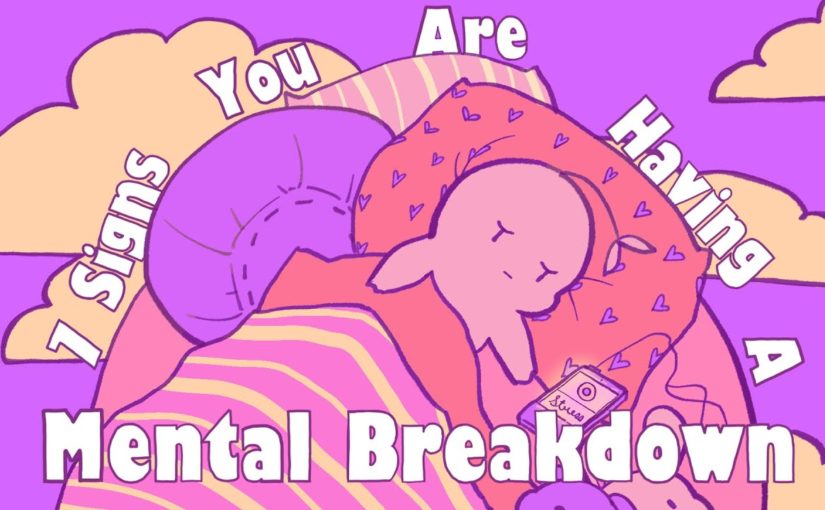
 Because of a sudden loss of motivation, If you find yourself having sudden unhealthy lifestyle changes, You might want to check on your mental well being Five paranoia. Are you constantly worried that people are going to hurt you? Paranoia is a thought process that causes you to have irrational suspicion or mistrust of others, As paranoia is also known for having constant anxiety, and related beliefs. Developing symptoms of paranoia may indicate that you are under severe stress, which can lead to a mental breakdown. Six slowing down of speech Have you responded with I don’t know, or I just don’t feel right When asked about your feelings? One of the earliest signs of a mental breakdown is changes in speech patterns Which can come in the form of hesitation or the slowness of speech. This could be due to the emergence of intrusive thoughts or strong feelings. You may find it difficult to express seven panic attacks. Mental breakdowns are periods of intense mental distress associated with anxiety and depression. Experiencing panic attacks may serve as a critical warning or precursor to having a mental breakdown. Do you relate to any of these signs? Let us know in the comments below Remember you, ‘re, not alone, and if you can relate to this, the video doesn’t afraid to reach out to a professional or talk to someone. You trust if If you find this video helpful be sure to like and share this video With those who might benefit from it subscribe to psych to go for more psychology videos The references, and studies used in this video. Are added in the description below Thanks for watching and we’ll see you in the next video.
Because of a sudden loss of motivation, If you find yourself having sudden unhealthy lifestyle changes, You might want to check on your mental well being Five paranoia. Are you constantly worried that people are going to hurt you? Paranoia is a thought process that causes you to have irrational suspicion or mistrust of others, As paranoia is also known for having constant anxiety, and related beliefs. Developing symptoms of paranoia may indicate that you are under severe stress, which can lead to a mental breakdown. Six slowing down of speech Have you responded with I don’t know, or I just don’t feel right When asked about your feelings? One of the earliest signs of a mental breakdown is changes in speech patterns Which can come in the form of hesitation or the slowness of speech. This could be due to the emergence of intrusive thoughts or strong feelings. You may find it difficult to express seven panic attacks. Mental breakdowns are periods of intense mental distress associated with anxiety and depression. Experiencing panic attacks may serve as a critical warning or precursor to having a mental breakdown. Do you relate to any of these signs? Let us know in the comments below Remember you, ‘re, not alone, and if you can relate to this, the video doesn’t afraid to reach out to a professional or talk to someone. You trust if If you find this video helpful be sure to like and share this video With those who might benefit from it subscribe to psych to go for more psychology videos The references, and studies used in this video. Are added in the description below Thanks for watching and we’ll see you in the next video.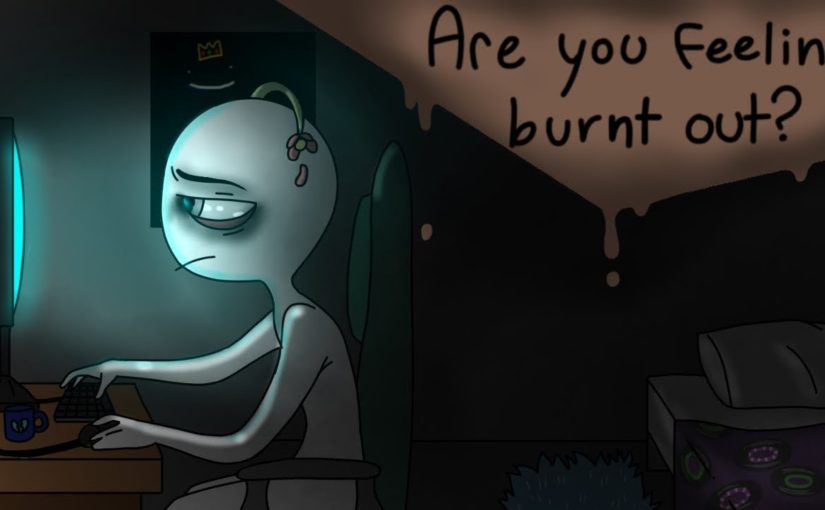
 Lazy people on the other hand
are a stark contrast to this, because they’re often
very relaxed, laid back, placid, and unaffected by things. Number five, you’ve
neglected your self-care. One of the most distressing warning signs that someone may be emotionally
and physically burnt out is if you start neglecting yourself and socially withdraw from others. There are concerning
changes in your eating and/or sleeping patterns. You stop making an effort to
groom yourself or look good, and you tend to spend most of your time by yourself doing nothing because you’re so easily exhausted by even the simplest of tasks. The difference between
being burnt out and laziness is starkly in the fact that
you weren’t always this way. And number six, these
changes happened gradually. Finally, but perhaps most importantly, something you should know about burnout is that it develops in stages. So all of the points mentioned before; losing interest and motivation, especially in things we used to love, feeling detached from yourself and disconnected from
everything around you, socially withdrawing, and
neglecting your self-care, won’t just happen overnight. Studies show that there are five major stages of burnout, each with increasing degrees of severity. The honeymoon phase is the onset of stress, chronic stress, burnout, and habitual burnout. Many people begin to experience symptoms as early as the second phase, when there is still a
moderate amount of stress, but optimism, interest,
motivation, and performance, may already start declining. And by the time you reach
the fifth and final stage, burnout has already become
so embedded in your life that the persistent mental
and physical fatigue becomes more intense and harder to treat; making you more vulnerable to developing depression and anxiety. Spotting the signs of burnout early makes it all the
easier for you to get help and recover from it. That’s why it’s so
important to raise awareness about burnout instead of simply
dismissing it as laziness like most people tend to do. So if you or anyone
you know maybe suffering from mental or emotional burnout, please don’t hesitate to reach out to a mental health care professional today and talk to them about it. If you find this video helpful, be sure to hit the like button, feel free to leave a comment
down below with your thoughts, experiences, and suggestions, and share it with those out there battling the haze of burnout. Don’t forget to subscribe, just go and hit the notification
bell from one new video. And as always, thanks for watching. (upbeat music).
Lazy people on the other hand
are a stark contrast to this, because they’re often
very relaxed, laid back, placid, and unaffected by things. Number five, you’ve
neglected your self-care. One of the most distressing warning signs that someone may be emotionally
and physically burnt out is if you start neglecting yourself and socially withdraw from others. There are concerning
changes in your eating and/or sleeping patterns. You stop making an effort to
groom yourself or look good, and you tend to spend most of your time by yourself doing nothing because you’re so easily exhausted by even the simplest of tasks. The difference between
being burnt out and laziness is starkly in the fact that
you weren’t always this way. And number six, these
changes happened gradually. Finally, but perhaps most importantly, something you should know about burnout is that it develops in stages. So all of the points mentioned before; losing interest and motivation, especially in things we used to love, feeling detached from yourself and disconnected from
everything around you, socially withdrawing, and
neglecting your self-care, won’t just happen overnight. Studies show that there are five major stages of burnout, each with increasing degrees of severity. The honeymoon phase is the onset of stress, chronic stress, burnout, and habitual burnout. Many people begin to experience symptoms as early as the second phase, when there is still a
moderate amount of stress, but optimism, interest,
motivation, and performance, may already start declining. And by the time you reach
the fifth and final stage, burnout has already become
so embedded in your life that the persistent mental
and physical fatigue becomes more intense and harder to treat; making you more vulnerable to developing depression and anxiety. Spotting the signs of burnout early makes it all the
easier for you to get help and recover from it. That’s why it’s so
important to raise awareness about burnout instead of simply
dismissing it as laziness like most people tend to do. So if you or anyone
you know maybe suffering from mental or emotional burnout, please don’t hesitate to reach out to a mental health care professional today and talk to them about it. If you find this video helpful, be sure to hit the like button, feel free to leave a comment
down below with your thoughts, experiences, and suggestions, and share it with those out there battling the haze of burnout. Don’t forget to subscribe, just go and hit the notification
bell from one new video. And as always, thanks for watching. (upbeat music).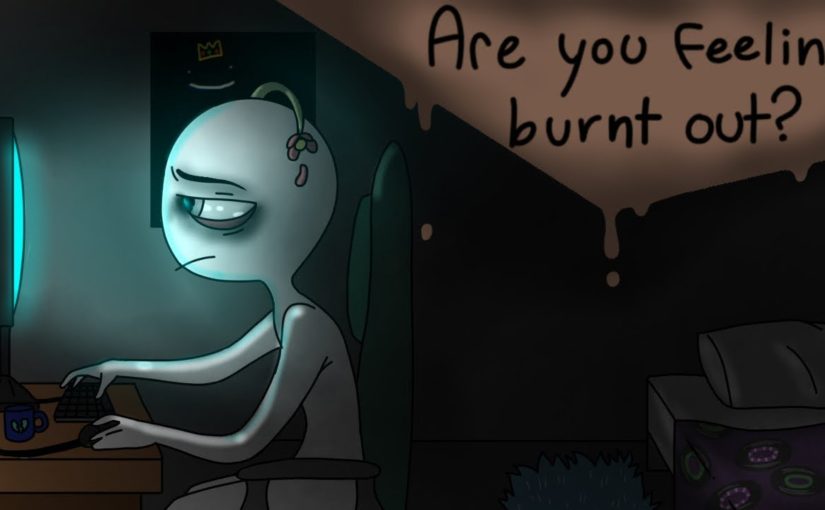
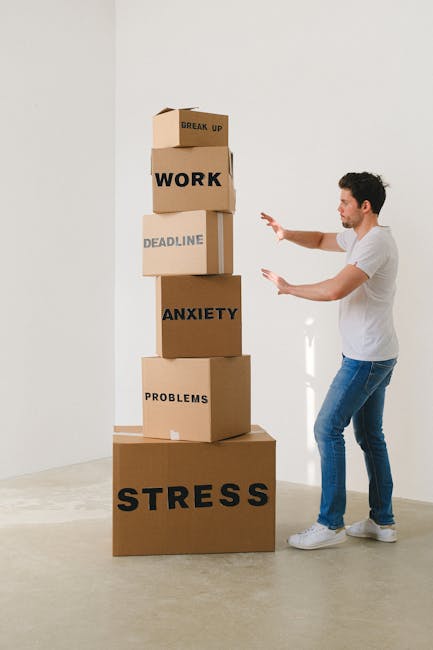 The difference between
being burnt out and laziness is starkly in the fact that
you weren’t always this way. And number six, these
changes happened gradually. Finally, but perhaps most importantly, something you should know about burnout is that it develops in stages. So all of the points mentioned before; losing interest and motivation, especially in things we used to love, feeling detached from yourself and disconnected from
everything around you, socially withdrawing, and
neglecting your self-care, won’t just happen overnight. Studies show that there are five major stages of burnout, each with increasing degrees of severity. The honeymoon phase is the onset of stress, chronic stress, burnout, and habitual burnout. Many people begin to experience symptoms as early as the second phase,when there is still a
moderate amount of stress, but optimism, interest,
motivation, and performance, may already start declining. And by the time you reach
the fifth and final stage, burnout has already become
so embedded in your life that the persistent mental
and physical fatigue becomes more intense and harder to treat; making you more vulnerable to developing depression and anxiety. Spotting the signs of burnout early makes it all the
easier for you to get help and recover from it. That’s why it’s so
important to raise awareness about burnout instead of simply
dismissing it as laziness like most people tend to do. So if you or anyone
you know may be suffering from mental or emotional burnout, please don’t hesitate to reach out to a mental health care professional today and talk to them about it. If you find this video helpful, be sure to hit the like button, feel free to leave a comment
down below with your thoughts, experiences, and suggestions, and share it with those out there battling the haze of burnout. Don’t forget to subscribe, just go and hit the notification
bell from one new video. And as always, thanks for watching. (upbeat music).
The difference between
being burnt out and laziness is starkly in the fact that
you weren’t always this way. And number six, these
changes happened gradually. Finally, but perhaps most importantly, something you should know about burnout is that it develops in stages. So all of the points mentioned before; losing interest and motivation, especially in things we used to love, feeling detached from yourself and disconnected from
everything around you, socially withdrawing, and
neglecting your self-care, won’t just happen overnight. Studies show that there are five major stages of burnout, each with increasing degrees of severity. The honeymoon phase is the onset of stress, chronic stress, burnout, and habitual burnout. Many people begin to experience symptoms as early as the second phase,when there is still a
moderate amount of stress, but optimism, interest,
motivation, and performance, may already start declining. And by the time you reach
the fifth and final stage, burnout has already become
so embedded in your life that the persistent mental
and physical fatigue becomes more intense and harder to treat; making you more vulnerable to developing depression and anxiety. Spotting the signs of burnout early makes it all the
easier for you to get help and recover from it. That’s why it’s so
important to raise awareness about burnout instead of simply
dismissing it as laziness like most people tend to do. So if you or anyone
you know may be suffering from mental or emotional burnout, please don’t hesitate to reach out to a mental health care professional today and talk to them about it. If you find this video helpful, be sure to hit the like button, feel free to leave a comment
down below with your thoughts, experiences, and suggestions, and share it with those out there battling the haze of burnout. Don’t forget to subscribe, just go and hit the notification
bell from one new video. And as always, thanks for watching. (upbeat music).